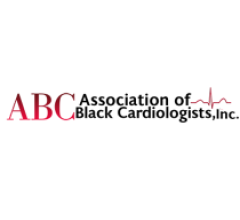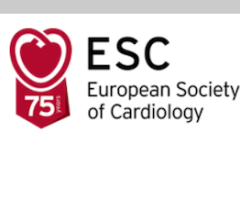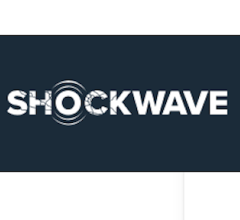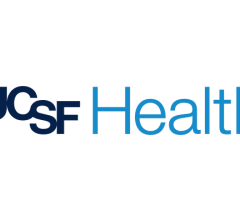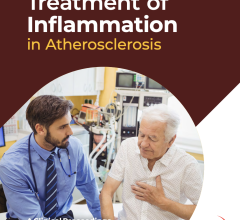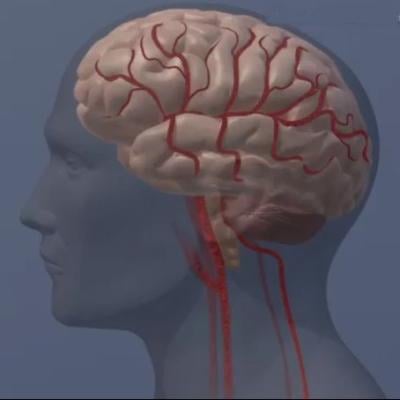
Illustration of the human brain. Copyright American Heart Association
February 10, 2023 — A study of two widely used cardiovascular medications — cilostazol and isosorbide mononitrate — in more than 350 patients confirmed the two medications were well-tolerated and safe for people who have experienced a stroke in a small blood vessel deep in the brain. The results suggest the medications may help improve patient outcomes, according to preliminary late-breaking science presented today at the American Stroke Association’s International Stroke Conference 2023. The meeting, held in person in Dallas and virtually Feb. 8-10, 2023, is a world premier meeting for researchers and clinicians dedicated to the science of stroke and brain health.
Small vessel disease of the brain accounts for about 20% -25% of all ischemic strokes, according to previous research. A lacunar stroke, or small vessel stroke, occurs when the inner lining of the tiny blood vessels inside the brain are damaged, leading to a stroke or dementia.
“Currently, there is no proven treatment to prevent poor outcomes after lacunar stroke, so the ultimate goal with this research is to evaluate if medications with potential modes of action on the inner lining of blood vessels might help improve small vessel function and prevent or slow long-term brain damage after lacunar stroke,” said lead study investigator Joanna M. Wardlaw, M.D., FAHA, professor of applied neuroimaging, honorary consultant neuroradiologist, head of neuroimaging sciences and the director of Edinburgh Imaging at Edinburgh University in Edinburgh, Scotland. She is also the foundation chair of the U.K. Dementia Research Institute.
The medications in the study are commonly prescribed for other cardiac conditions. Isosorbide mononitrate is used to treat chest pain by relaxing blood vessels and decreasing blood pressure. Cilostazol improves the flow of blood by relaxing the blood vessels and reducing blood clotting. It is often prescribed for people with peripheral artery disease — a narrowing of the peripheral arteries that carry blood away from the heart to other parts of the body.
This study, called LACunar Intervention Trial 2 (LACI-2), is the second largest ever trial in lacunar stroke. It examined whether such a trial was feasible among people with lacunar strokes and if the medications would be well-tolerated for one year after lacunar stroke. Researchers also analyzed safety and other outcomes, including recurrent stroke, cognitive impairment, dependency, mood and quality of life. This detailed information is needed for the next stage of research – a phase 3 trial, which would include more study participants. Results of the analysis on cognitive status at one year will be presented separately in the same Main Event session on Feb. 9.
From Feb. 2018 to May 2022, researchers enrolled 363 adults who had experienced lacunar stroke from 26 stroke centers throughout the United Kingdom. The participants were average age 64 years, and 31% were women. All study participants continued to take their usual prescribed medications as per stroke guidelines, including those that reduce blood clotting, lower blood pressure and/or lower cholesterol — all of which may lower the risk of a second or recurrent stroke.
Participants were randomly assigned to one of four treatment groups: 40-60 mg/day of oral isosorbide mononitrate alone; 200 mg/day of oral cilostazol alone; both medications; or neither medication for one year. The participants completed phone surveys at 6 and 12 months to assess health status, including recurrent stroke and heart problems, cognitive tests, symptoms, quality-of-life surveys, and had brain imaging at 12 months.
The study met its initial goals to determine if a larger trial was feasible and if the medications were safe and tolerable. After one year, 358 of the adults were still participating in the study, with 95% of participants taking at least half of medication doses prescribed for the trial. Safety criteria were also met: four participants died; there were four episodes of bleeding outside of the brain; no excessive falls or dizziness. Some participants experienced mild symptoms (such as headaches), which were expected.
Researchers also saw some potential benefits from the medication groups, including data that indicated the group who took the combined isosorbide mononitrate and cilostazol had a reduction in the amount of assistance they needed with everyday living tasks, a reduction in cognitive impairment and positive impacts on mood and quality of life. Isosorbide mononitrate alone reduced recurrent stroke, cognitive impairment and improved quality of life; cilostazol alone reduced the need for daily assistance.
“There appeared to be some potential benefits that will need to be confirmed in a larger phase 3 trial,” Wardlaw said. “We saw good hints of efficacy, particularly for isosorbide mononitrate on reducing recurrent stroke and cognitive impairment, and we also found that both medications together seemed to work synergistically, rather than counteracting any benefit. This is very encouraging since no study has previously found any medications that positively affect cognitive impairment in small vessel disease strokes. So, we cautiously hope that these medications may have wider implications for other types of small vessel disease.”
The study has some limitations, including that it was relatively small at 363 patients and not designed to measure efficacy, thus the results showing effectiveness should be interpreted cautiously. The trial was open label, meaning participants and clinicians were aware of which medication/s and doses they were taking; however, the follow-up staff for the study were unaware of which treatment the patients were assigned. Additionally, the investigators did not collect data on race or ethnicity, and many ethnic groups were suspected to be underrepresented.
For more information: www.stroke.org


 February 04, 2026
February 04, 2026 
